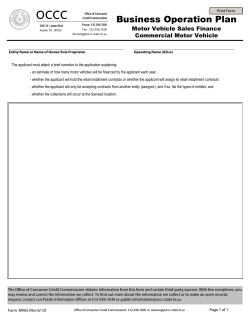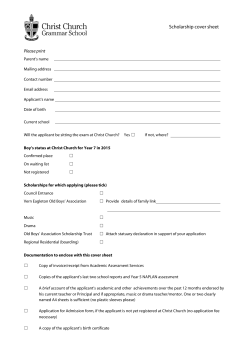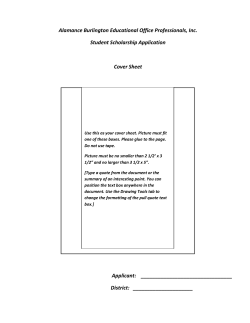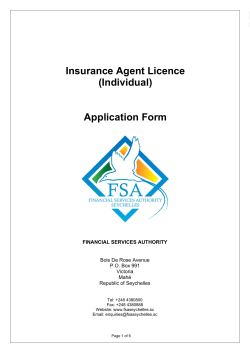
REPUBLIC OF SOUTH AFRICA In the matter between:
REPUBLIC OF SOUTH AFRICA THE LABOUR COURT OF SOUTH AFRICA, JOHANNESBURG JUDGEMENT Not Reportable Case no: JR 2456/2008 In the matter between: NEHAWU obo E.S CHAKELA Applicant and VAAL UNIVERSTY OF TECHNOLOGY MAGRET SMITH N.O First Respondent Second Respondent COMMISSION FOR CONCILIATION MEDIATION AND ARBITRATION Third Respondent Heard: 15 May 2014 Delivered: 9 October 2014 Summary: Review application. Respondent raised peremption as a point in limine. Principle of peremption and its application to review restated. ______________________________________________________________________ JUDGMENT ______________________________________________________________________ 2 MOLAHLEHI J Introduction [1] This is an application review and set aside the arbitration award made by the third respondent under case number GAJB39212/07 in terms of which the dismissal of the individual applicant was found to have been substantively unfair. For this reason the Commissioner awarded compensation equivalent to three month’s salary. The review is on the narrow point relating to the relief made by the Commissioner. The essence of the applicant in this regards is that the Commissioner ought to have awarded reinstatement and not compensation alone. [2] The first respondent has opposed the application and has raised three preliminary points relating to the delay in the prosecution of the review, failure by the applicant to produce the transcript of the arbitration hearing and peremption. The background [3] The applicant who was prior to his dismissal employed as the sound technician was charged and dismissed for misconduct concerning allegations of sabotage and insolence. The charges relate to what happened on Woman’s day celebration when the individual applicant was required to set up the sound system for the event. The allegation that the he sabotaged the event arose from the allegation that the individual applicant made the system available to the students instead the Head: Corporate Communication. [4] It is apparent from the papers that after setting the sound system the applicant left it in the hall where the event was to take place and that was after communicating with the responsible manager for the event. It would appear that before the manager could arrive at the venue the students took over the sound system and used it for their own purpose. The individual applicant was accused of having allowed the students to use the sound system and that was the basis for the charges which were proffered against him. 3 The arbitration award [5] The Commissioner accepted the version of individual applicant that his responsibility was to install the sound system and was thereafter not responsible for looking after it. The Commissioner further accepted as common cause that the individual applicant left the sound system equipment after speaking to the manager who was responsible for the event and she had told him that she was on her way to the venue. It was for this reason that the arbitrator found the individual applicant not guilty of the offences he was charged with. [6] The other important finding which the Commissioner made upon which the present review seem to turn on is that: “It is my view that the Applicant was guilty of negligence in not staying with the sound equipment until Mrs Makgalaka’s arrival. This led to the said “marching students” being able to “high-jack” the equipment for their own use. I could ever not find any intent in the Applicant’s actions to constitute sabotage.” Grounds for review [7] The applicant contends that the decision made by the Commissioner to award him compensation only and not to reinstate him when in case the federal of the dispute to arbitration had prayed for reinstatement, is an unreasonable decision which is reviewable for that reason. Evaluation [8] As indicated earlier, the respondent has raised three points in limine in opposition to the applicant’s review application. The critical point which I believe this matter turns on concerns peremption. [9] The requirements of peremption in review matters can be summarized as follows:1 i. Where a right to review exists, the party desiring to review loses that right where he or she has acquiesced in the arbitration award 1 In the principles of ent in National Union of Metalworkers of SA & others v Fast Freeze (1992) 13 ILJ 963 (LAC). 4 unconditionally and without any reservation which acquiescence may be express or implied from conduct. ii. The acquiescence by conduct entails the applicant conveying outwardly to the other party the attitude or stand towards the award. iii. The conduct must be consistent with an intention to abide by the arbitration award and inconsistent with an intention to review it. iv. The test to determine whether the applicant has manifested an outward attitude in relation to the award is objective and thus the subjective state of mind or intention of the applicant is irrelevant. v. The Court in considering whether the award has been perempted will determine whether fairly construed the conduct of the applicant leads to the conclusion of abiding with the award. vi. The onus of proving that an award has been perempted rests with the party seeking to rely on that doctrine. vii. The party seeking to rely on preemption stands to fail if more than one inference may be fairly drawn from the conduct of the other party. This means that the conduct relied upon to evoke preemption has to be unequivocal. [10] The basic requirement to sustain a claim of peremption entails having to show that the acceptance of the outcome of the arbitration award expressly or by conduct was unequivocal.2 In other words the applicant loses his or her right to challenge on review the arbitration award where the review application is instituted after accepting the outcome of the ward unequivocally and without any reservation. 2 Balasana v Motor Bargaining Council & others [2010] JOL 26075 (LC). 5 [11] In the circumstances of the present case the applicant lost his right to review when he accepted the payment made by the first respondent in compliance with the arbitration award and did so without any reservation. [12] Accordingly, I find that the point of peremption raised by the first respondent stands to succeed. In light of this finding I do not deem it necessary to deal with the other points raised by the first respondent nor the merits of the review application. I do not however believe that it would be fair to allow the costs to follow the results. Order [13] In the premises the following order is made: 1. The peremption point raised by the first respondent is upheld. 2. The applicant has accordingly perempted the right to review the arbitration award. 3. The review application is dismissed, with no order as to costs. ______________ E MOLAHLEHI JUDGE OF THE LABOUR COURT Appearances: 1. For the Applicant: N Thaanyane of Thaanyane Attorneys 2. For the Respondent: VG Ndlovu of Lebea & Associates
© Copyright 2025









